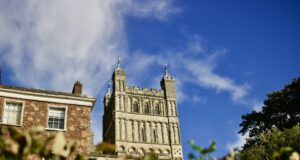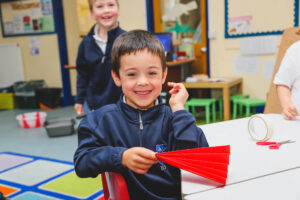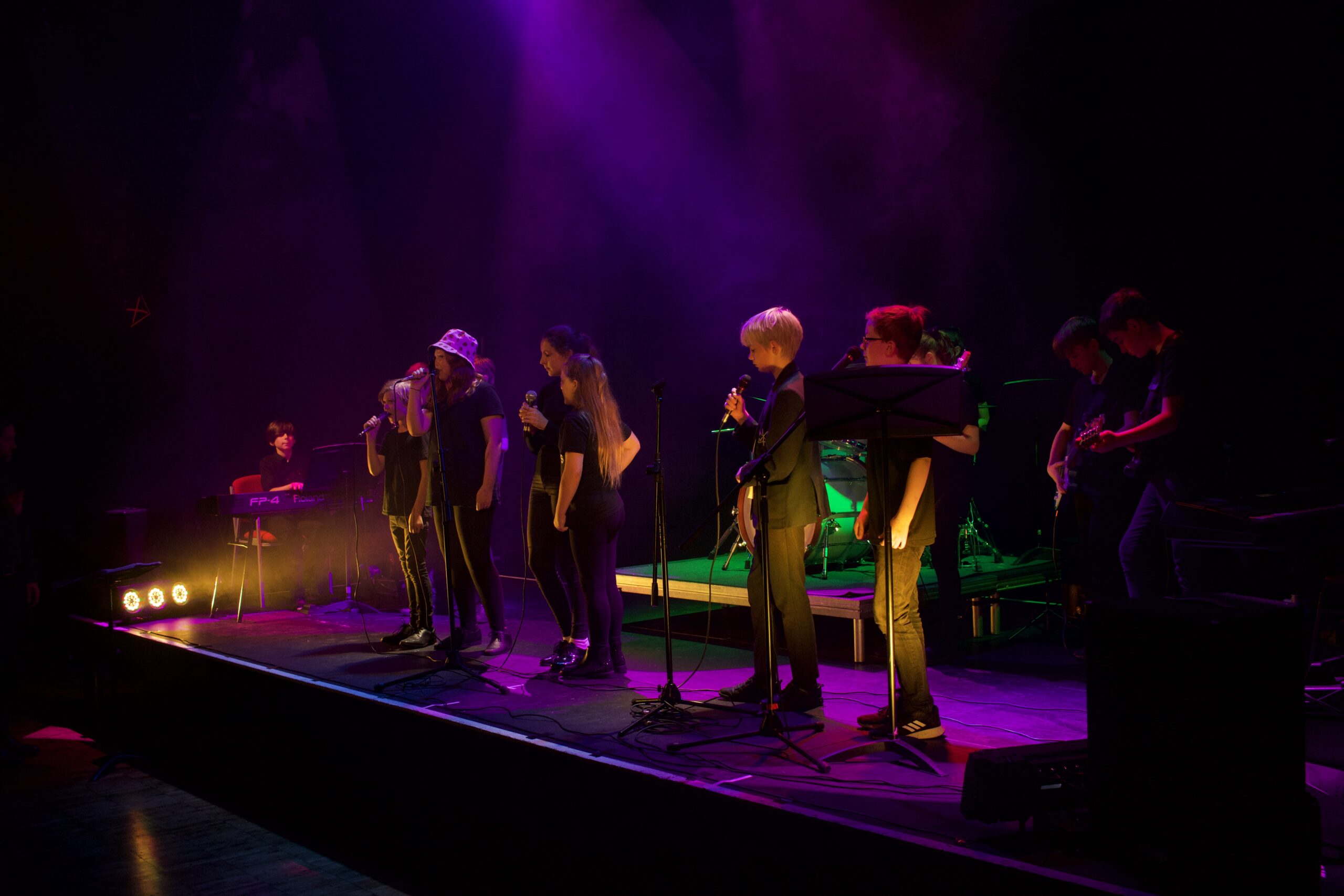‘He who sings prays twice’ said (say some) St Augustine way back in the 6th century. Pluralising (and therefore gender-neutralising) the pronoun is both more acceptable and more accurate: we’ve had Girl Choristers here since 1994 (ours was the second English cathedral to embrace a full-fledged girls’ choir), and ‘those’ is therefore what St Augustine (or a.n.other) ought to have said. But the point that this well-known and questionably-attributed phrase makes is a brilliant one: there’s something about singing that lifts our words, that raises our hearts, that sends the spirit soaring.
Singing is beautifully simple whilst also being juxtapositional in what it gives us and asks of us: it is an experience ‘as well for the body as the soul’; it is at once whole-heartedly collaborative and entirely individual; inasmuch as we give it our all, it places us at once in a position of power and in a position of vulnerability. Coming together to sing helps our souls experience something of the move from the earthly to the heavenly; from the human to the divine.
The point is that singing is a really good thing. We’ve been doing it here at ECS for over 900 years (since our foundation in 1179 as the Chorister School, Exeter), and it remains to this day a key part of the rhythm and pulse of the School. Singing is in the walls and in the blood, and it’s something that we do together pretty much every day. In Headmaster’s Assembly this Monday just gone, we voted on the hymn that we were about to sing (Angel Voices was the hands-down – actually, hands-up – winner) – it struck me as a good example for the pupils of democracy in action in School. There’s hymn practice with Mr QB and Mr and Mrs FP on a Tuesday morning, as well as hymns at every Lower Years and Upper Years Morning Worship each week. We’re proud to have four choirs across the School, and even prouder that every single pupil sings in one of them. And of course, our Choristers continue to this day to lead the pattern of daily sung services in the Cathedral once lessons have finished for the day. If you’ve never been to an Evensong, I do encourage you to come along: it’s at 5.30pm every day in the Cathedral, is completely free, and is about the best early-evening wind-down in town.
And, as it turns out, singing is good for you! Lucky that, all things considered. I watched a video produced by Classic FM yesterday, in which Professor Sarah Wilson from the School of Psychological Sciences at the University of Melbourne speaks about the mental health benefits of singing. Following on from my piece last week about the steps the School is taking to promote positive mental health amongst its pupils, staff and wider community, I thought I would share with you this week some of what Professor Wilson had to say to Classic FM when they asked her the question: ‘Is singing good for your mental health?’:
‘When we put people in the scanner and look at their brains when they’re singing, what we see is that large areas of the brain light up or activate. … These include motor networks, auditory or listening networks, planning and organistaional networks, memory networks, language networks if we’re singing with words, and also emotional networks. And they augment social bonding and empathy. The complexity of singing is striking for the brain even though, to us, it feels like a relatively easy process. What’s remarkable about singing is that, in the act of doing it, we activate our reward network. These emotions lead to the release of dopamine, which is the feel-good chemical for the brain. So, if you like, singing is a form of natural therapy. It lifts our mood, it releases dopamine, and it gives all those networks a workout, bringing protective or neuro-protective benefits for our mental health’.
So there we are: we’ve been ahead of the game for 900 years. One of the keys to wellbeing is something we’ve been doing every day, all of us, for years. And I’ve no plans for that to change. We pride ourselves on being a School which offers a first-rate all-round educational experience in all areas (have a read of the sports round-up this week, for example) – and singing is an absolutely integral and deeply-rooted part of that experience.
Perhaps what St Augustine could have said is ‘those who sing are twice as happy’. Take a walk around our School and I’m pretty sure you’ll find that to be true.







